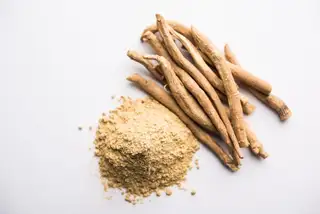
The Healing Power of Cordyceps Sinensis Medicinal Mushroom
In the realm of natural medicine, Cordyceps sinensis stands out as a remarkable medicinal mushroom with a long history of use and a wealth of potential health benefits. This unique fungus has captured the attention of researchers and health enthusiasts alike for its purported healing powers. In this comprehensive article, we will explore the various aspects of Cordyceps sinensis, including its traditional uses, scientific research, mechanisms of action, and potential applications in promoting overall health and treating specific conditions.
History and Traditional Uses of Cordyceps Sinensis
Cordyceps sinensis has been highly regarded in traditional Chinese medicine for centuries. It is often referred to as "Dong Chong Xia Cao" and has been used to address a wide range of health concerns. In traditional practices, it was believed to enhance vitality, improve respiratory function, boost kidney health, and increase energy levels.
The ancient Chinese observed its remarkable effects on the human body and passed down the knowledge of its usage through generations. This traditional wisdom forms the foundation for the modern exploration of Cordyceps sinensis' therapeutic potential.
Chemical Composition and Active Compounds
To understand the healing power of Cordyceps sinensis, it is essential to examine its chemical composition. The mushroom contains a complex array of bioactive compounds, including cordycepin, polysaccharides, sterols, and various amino acids.
Cordycepin is one of the key components that has been extensively studied for its potential pharmacological activities. Polysaccharides, on the other hand, contribute to the immune-modulating effects of the mushroom. These compounds work synergistically to exert the beneficial effects associated with Cordyceps sinensis.
Mechanisms of Action in the Human Body
The therapeutic effects of Cordyceps sinensis can be attributed to several mechanisms of action. One of its primary functions is its ability to modulate the immune system. It enhances the activity of immune cells such as macrophages, T-cells, and natural killer cells, thereby strengthening the body's defense mechanisms against infections and diseases.
It also exhibits anti-inflammatory properties by regulating the production of inflammatory cytokines. This can be particularly beneficial in conditions characterized by chronic inflammation, such as arthritis and certain autoimmune disorders.
Furthermore, Cordyceps sinensis is believed to improve energy metabolism by enhancing mitochondrial function. This leads to increased ATP production, providing a boost in energy and stamina.
Health Benefits and Therapeutic Applications
Respiratory Health
Cordyceps sinensis has shown promise in improving respiratory function. It is thought to alleviate symptoms of chronic obstructive pulmonary disease (COPD), asthma, and other respiratory conditions by reducing inflammation and improving lung capacity.
Kidney Function
In traditional medicine, Cordyceps sinensis has been used to support kidney health. Research suggests that it may have a protective effect on the kidneys, helping to regulate kidney function and potentially delaying the progression of kidney diseases.
Cardiovascular Health
Studies have indicated that Cordyceps sinensis may have a positive impact on cardiovascular health. It can lower cholesterol levels, regulate blood pressure, and improve blood circulation, reducing the risk of heart diseases.
Anti-Aging Effects
The antioxidant properties of Cordyceps sinensis contribute to its potential anti-aging benefits. By scavenging free radicals and reducing oxidative stress, it may help slow down the aging process and protect cells from damage.
Enhanced Physical Performance and Fatigue Reduction
Athletes and individuals looking to improve physical performance may benefit from Cordyceps sinensis. It is believed to increase endurance, reduce fatigue, and improve recovery after exercise.
Scientific Research and Clinical Studies
In recent years, numerous scientific studies and clinical trials have been conducted to validate the claims associated with Cordyceps sinensis. These studies have provided valuable insights into its efficacy and safety.
For example, research has shown that Cordyceps sinensis supplementation can improve exercise capacity and oxygen utilization in athletes. Clinical trials have also demonstrated its potential in managing respiratory disorders and improving quality of life in patients with chronic diseases.
However, it is important to note that while the results are promising, more extensive and long-term studies are needed to establish conclusive evidence and determine the optimal dosage and treatment regimens.
Dosage and Administration
The appropriate dosage of Cordyceps sinensis depends on various factors such as the individual's health status, the specific condition being treated, and the form of the supplement or extract being used. It is advisable to consult a healthcare provider or a qualified herbalist for personalized dosage recommendations.
Cordyceps sinensis is available in various forms, including capsules, powders, and tinctures. The quality and purity of the product are crucial, and it is recommended to choose products from reputable sources to ensure authenticity and potency.
Safety and Potential Side Effects
In general, Cordyceps sinensis is considered safe for most individuals when consumed in appropriate dosages. However, as with any supplement or herbal remedy, there may be potential side effects or interactions with certain medications.
Some individuals may experience mild gastrointestinal disturbances, allergic reactions, or interactions with immunosuppressant drugs. People with underlying health conditions, pregnant or breastfeeding women, and those taking multiple medications should exercise caution and consult a healthcare professional before using Cordyceps sinensis.
Conclusion
The healing power of Cordyceps sinensis medicinal mushroom is a subject of great interest and ongoing research. Its traditional uses, combined with emerging scientific evidence, suggest its potential as a valuable adjunct in maintaining health and treating various conditions. However, further studies are necessary to fully understand its mechanisms of action and to establish standardized guidelines for its use.
As we continue to explore the vast world of natural medicine, Cordyceps sinensis holds the promise of offering new insights and therapeutic options for promoting well-being. But always remember, it should be used as part of a comprehensive healthcare approach and under the guidance of a qualified healthcare provider.





